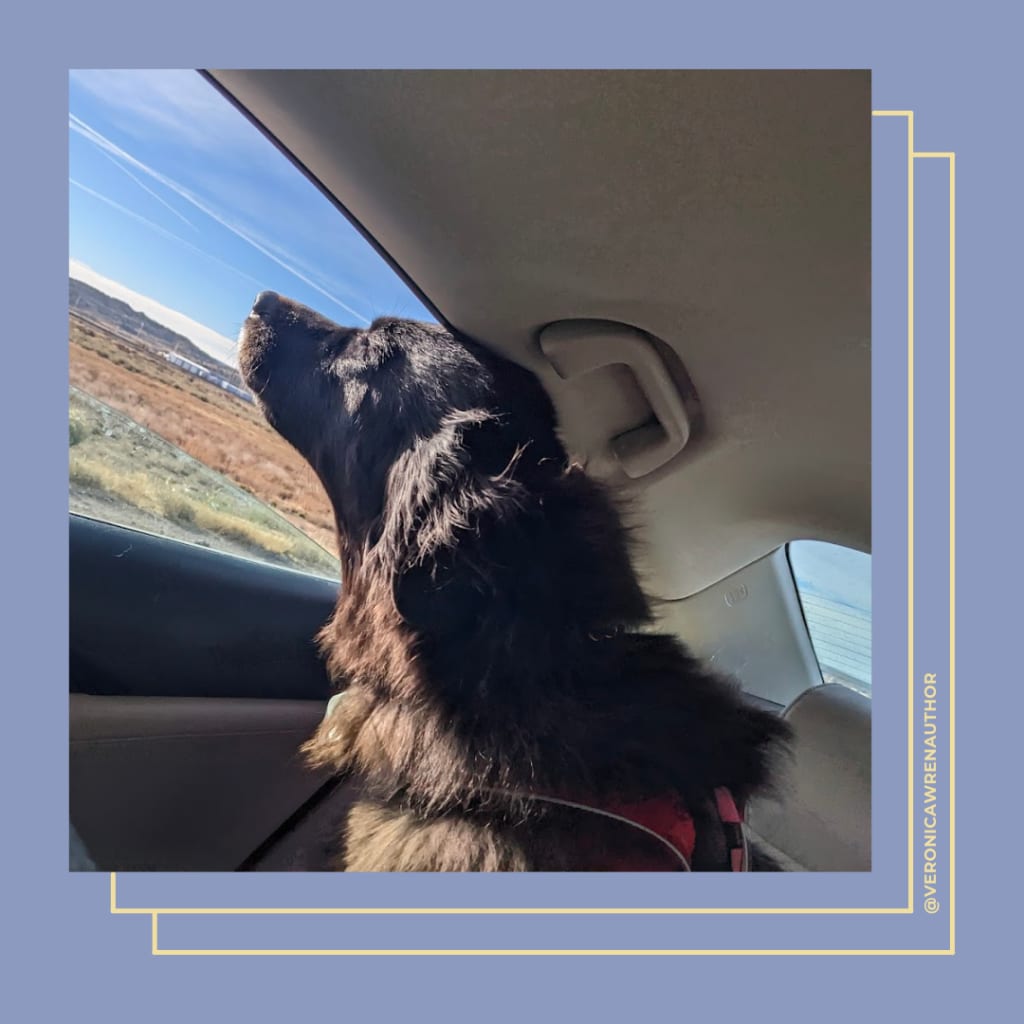
Your traumatized brain is a lot like your beloved first car. It should be treated with the same energy of acceptance, warmth, and reverence.
Start Your Engines
Imagine your very first car as a teen. Was she a little… quirky? She probably wasn’t brand new, came with some prior damage, and I can almost guarantee you put her through the absolute ringer.
Lesser drivers were put off by the taped up windows or the bits of stuffing from the torn roof fabric anointing them like fresh snow. Those drivers were unworthy of gracing her invitingly weathered seats.
You, on the other hand, knew exactly how far past E you could make it before you absolutely, without a doubt, HAD to stop for gas.
You knew some days you’d need to get under the hood and jiggle the loose cable connecting the battery to the engine before you could get moving.
Only you had the intuitive, near-mystical ability to coax the broken inner-door handle back into place and entice the driver door latch into opening.
“You just have to treat her right!” you’d chuckle affectionately, rubbing the dusty, coffee-splattered dashboard.
Your friends couldn’t understand your unique connection. Of course, it was impossible to hear anything over the blown stereo speaker rattling out The Wavves.
Golden dust motes twinkled in the beam of sunset streaming through the streaked windshield.
The Road So Far
You and your first car went through a lot together. You held space for her imperfections, even found them endearing, once you learned how to properly manage and respect them. In putting this work in, you gained one another’s trust.
She may not have been a well-oiled machine, but you’d remember to get that changed eventually. With all her quirks and malfunctions, you were the only one who put the hours into learning to treat her right.
You knew the only way to get where you wanted to go was if you worked together. Together, the two of you meant freedom.
Getaway Car: Rebuilding After Abuse
When I escaped my abuser of five years, in many ways I was forced to learn to function again from scratch. I’d lost my hometown, my job, my mental health, my financial stability, and my vision of the road that lay ahead.
Pushing forward felt like learning to drive again in my old, beat-up sedan. Just as I’d learned to navigate the quirks of my first car, I embarked on a journey of understanding and managing the idiosyncrasies of my own traumatized brain.
I had a vague idea of where I was going, but honestly, I’ve always been terrible with directions. I only knew I had to get away.
So I kept moving. Moved across the country to rediscover my sense of safety. Changed careers with little to no plan to get away from the toxic culture that had such a role in my silence and trauma. Began the uphill climb of prioritizing my mental health and unpacking years of suffering.
I’d sustained more damage than many around me, which meant not all of my parts worked quite as they should. This put me at a big disadvantage, because I kept discovering issues that limited my functioning in various ways.
The obstacles caused by trauma: insomnia, hypervigilance, nightmares, anger, and many more, made it a struggle to get around at all. Stigma and shame of the damage that had been inflicted upon me made accepting my Complex Post-Traumatic Stress Disorder (CPTSD) diagnosis a challenge.
But, just as we did when we were kids itching for a taste of freedom, we work with what we can get. So I burned mixed CDs to cover the sound of my blown muffler and kept chugging along.
I moved alone until I was finally ready to trust someone new in the passenger seat.
And since I’d spent that solo time tuning into my needs and learning how I function best, I was able to share the beginnings of a user manual with my new partner.
Learning how to communicate about my needs sparked many wonderfully vulnerable conversations about boundaries, expectations, and how to best work together as a team.
Doing this work, both alone and with my partner, has been essential to building and maintaining trust after experiencing abuse. I feel so fortunate to have found someone willing to be so emotionally open with me. It’s possible I’m even starting to believe him when he says he’s in for the long haul.
Shifting Gears: Managing Trauma Symptoms
I’m determined to continue moving, despite the limitations posed by my trauma injuries. For me, it’s been essential to learn as much about trauma’s impacts on my health as possible in order for me to navigate life semi-comfortably.
Knowing how I react to triggers, the signs of an anxiety attack, and how I best recharge from social exhaustion helps me to cope better when symptoms arise. It also helps me learn to communicate that I need help when coping becomes too much.
If your trauma symptoms were the types of problems your first car had, what would they be? How do you know when it’s time to pull the car over for a while? How much are you limited by a part breaking down? Can you survive without it?
Should you have to?
Crossroads: Reflecting on the Ride
The rearview shows you how the landscape has changed as you’ve traveled — rough terrains, impossible weather conditions, and the less-frequent smooth highways.
At points in your journey, you may have stalled. You may have encountered obstacles you didn’t think you’d overcome.
But you’re here now.
With each mile, you grow more attuned to your own specific needs and gain a deeper understanding of what’s keeping you going.
Just as the mysteriously dented trunk and lingering Poptart smell bring stories of shared adventures, the twists and valleys of your mental landscape become part of your lore. Glancing back at it, so small in the rearview, you feel a mix of relief, wonderment, and pride for having made it through.
You grip the wheel tightly as you look back to the road ahead of you. The handprints on the windshield take on a rosy glow.
I’m Glad You’re Here
After years spent advocating for domestic violence victims while hiding my own suffering, I absolutely refuse to let anyone feel abandoned in their abuse or its aftermath.
Trauma sucks. Recovery shouldn’t. That’s why I’m doing the work to make communicating about my own experiences as normal as possible while actively calling out abuse and inequity when I see it.
My aim is to give others a safe environment in which to develop these tools so we can start making some much-needed changes together.
Please support my continued writing (and help me inch my way toward my first book) by following and engaging with me on trauma and advocacy. I’d love to hear from you!
Subscribe in one click to receive your FREE digital copy of my new guided journal, “Empower and Heal: 90 Days of Transformational Prompts for Trauma Recovery, Self-Discovery, and Growth”, delivered straight to your inbox!
About the Creator
Veronica Wren
Trauma sucks. Recovery shouldn't. Subscribe here for your FREE exclusive guided journal
❤️🩹 bio.link/veronicawren ❤️🩹
Domestic Abuse & CPTSD Recovery Coach
Enjoyed the story? Support the Creator.
Subscribe for free to receive all their stories in your feed. You could also pledge your support or give them a one-off tip, letting them know you appreciate their work.






Comments
There are no comments for this story
Be the first to respond and start the conversation.